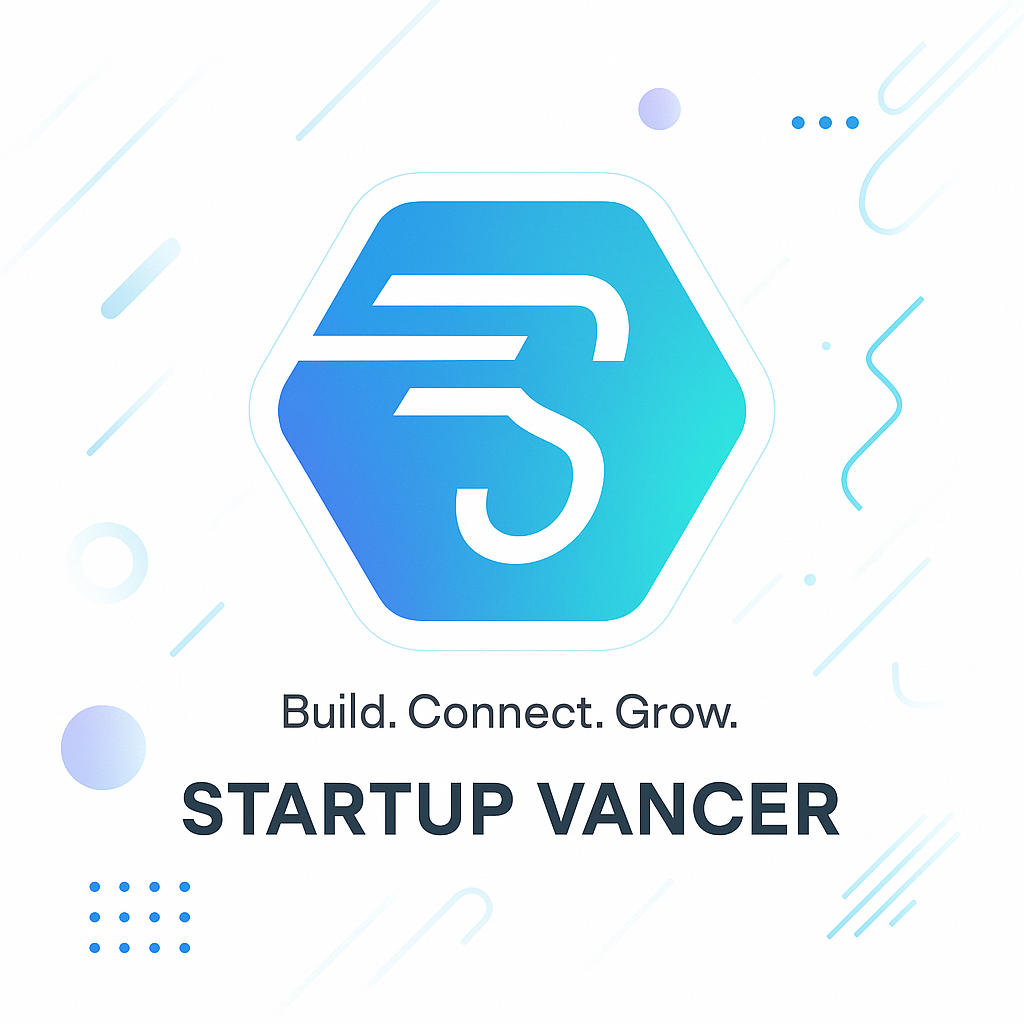
In today’s rapidly evolving landscape of climate technology, forming climate tech partnerships stands as a vital strategy for startups aiming to catalyze innovation. Leveraging cross-industry collaboration allows you to tap into diverse expertise, resources, and networks, paving the way for impactful solutions in the clean energy sector. As you embark on this journey, this guide will help you craft a comprehensive climate innovation strategy, with actionable steps for identifying potential collaborators, examining successful climate tech alliances, and implementing joint R&D initiatives. By establishing robust startup partnerships, you can harness the collective power of clean energy alliances to drive your vision forward and contribute significantly to a sustainable future.
Step: Identify Potential Collaborators
Identifying the right potential collaborators is crucial for climate tech startups aiming to maximize innovation and growth through partnerships. Here’s how you can effectively discover and connect with strategic partners in this dynamic ecosystem.
Engage in Networking Events
Start by actively participating in industry conferences, workshops, and innovation summits like the Mosambi Climate Summit. These gatherings provide invaluable opportunities to meet industry leaders, other startups, and investors. Networking not only broadens your connections but also enhances your understanding of current trends and potential partnership synergies.
Utilize Digital Platforms
Leverage online platforms such as LinkedIn and specialized forums that focus on climate innovation. Look for profiles of companies engaged in sectors relevant to your technology. Use these platforms to initiate conversations and foster collaborations focused on shared goals. Following the good example of successful firms can serve as a road map for your outreach efforts.
Mapping Complementary Strengths
Before reaching out, conduct thorough research to identify companies whose strengths complement yours. For instance, if you’re developing a clean energy solution, seek out firms that specialize in distribution or regulatory affairs. Aligning with companies that have expertise in areas such as financing, policy, or customer engagement will enhance the effectiveness of your clean energy alliances and drive successful outcomes.
Access Resources from Organizations
Don’t forget to tap into resources provided by organizations promoting cross-industry collaboration. Groups like Third Derivative and Founders Factory offer programs designed to connect startups with larger corporations and investors. These organizations can help bridge gaps by facilitating introductions and providing access to a wider network of potential partners, thus amplifying your reach.
| Action Item | Description |
|---|---|
| Attend Networking Events | Engage with industry leaders and startups for insights. |
| Use Digital Platforms | Find potential collaborators on platforms like LinkedIn. |
| Identify Complementary Brands | Research companies whose strengths align with yours. |
| Connect with Support Organizations | Leverage facilitator programs aimed at fostering partnerships. |
By systematically identifying and connecting with potential collaborators, you set the groundwork for successful partnerships that can accelerate innovation in the climate tech landscape. Harness the power of startup partnerships to pave the way for groundbreaking advancements in sustainability.

Case: Successful Climate Tech Alliances
Climate tech startups can significantly benefit from forming cross-industry collaboration to amplify their impact and expedite innovation. Noteworthy alliances highlight how such partnerships yield compelling outcomes in sustainability and technological advancement.
Successful Examples of Collaborations
| Partnership | Focus Area | Outcomes |
|---|---|---|
| Qantas & Airbus | Sustainable Aviation Fuel | Investment in $15 million to accelerate aviation decarbonization efforts. |
| Future Industries Partnership | Industrial Decarbonization | Support for startups in heavy industries such as steel and cement, providing vital technical and commercial assistance. |
| NYCEDC’s Pilots at BAT Program | Climate Technology Testing | Deployment of innovative solutions by connecting startups with local support and infrastructure. |
In the case of Qantas and Airbus, their commitment to investing AUD$15 million into Climate Tech Partners exemplifies startup partnerships aimed at developing sustainable aviation fuel. Their approach ensures that funding directly supports early-stage technologies, helping bridge gaps that often hinder progress in aviation emissions reduction.
Meanwhile, the Future Industries Partnership demonstrates how organizations like HSBC, Third Derivative, and Founders Factory unite to foster clean energy alliances. This three-year philanthropic program addresses investment barriers, aiming to decarbonize heavy industries across Asia and the Middle East. By leveraging their expertise, these partners assist startups in navigating the complex landscape of commercialization.
Lastly, the NYCEDC’s Pilots at BAT Program showcases municipal support for scaling climate innovations. By inviting startups to test their technologies within a collaborative environment, this program not only facilitates R&D but also promotes synergies with established organizations, further enhancing their visibility and operational capacity.
These cases underline the critical role of partnerships in climate tech, showcasing that innovation flourishes where collaboration thrives. Engaging in such alliances not only enhances technological capabilities but also accelerates pathways to a sustainable future.
Strategy: Joint R&D Initiatives
When it comes to advancing your climate tech solutions, engaging in joint R&D initiatives can significantly propel your startup’s innovation trajectory. By collaborating with other companies, research institutions, or governments, you can leverage shared resources, expertise, and diverse perspectives to tackle pressing climate challenges more effectively. Here’s how to get started:
1. Establish Shared Goals: First, ensure all parties involved have aligned objectives. By setting common goals targeted toward impactful climate innovation, you foster a unified direction. Whether it’s developing biodegradable materials or enhancing renewable energy technologies, clearly defined outcomes can streamline the research process.
2. Pool Resources: Through startup partnerships, you can access each other’s facilities, technologies, and funding. Collaborative investment significantly reduces the financial burden on individual entities, allowing more ambitious projects to flourish. For instance, a startup focusing on energy solutions could partner with a chemical firm to jointly develop green materials.
3. Facilitate Knowledge Exchange: Expecting to learn from partners not only broadens the scope of your innovation but also strengthens your overall R&D capacity. Regular workshops and meetings can cultivate a culture of continuous learning, fostering ideas that might not have emerged in isolation.
4. Navigate Challenges Together: Climate innovation often faces regulatory hurdles or market entry barriers. By collaborating, you can consolidate insights and navigate these challenges more efficiently. Combining strategies increases resilience against potential setbacks encountered along the way.
5. Measure Impact: It’s vital to assess the outcomes of your joint initiatives for long-term success. Establish Key Performance Indicators (KPIs) to measure innovation effectiveness and project viability. Celebrating achievements reinforces commitment to the partnership and sets a precedent for future collaborations.
In the ever-evolving climate tech landscape, cross-industry collaboration via joint R&D initiatives can accelerate your mission. By actively sharing knowledge and resources, you’re not just innovating; you’re playing a pivotal role in shaping a sustainable future. Leverage these strategies, and your startup could be at the forefront of the next breakthrough in climate technology.
Frequently Asked Questions
What is the Future Industries Partnership, and how does it aim to support climate tech startups?
The Future Industries Partnership is a three-year philanthropic initiative launched by HSBC, Third Derivative, and Founders Factory, designed to help climate tech startups overcome barriers to investment and deployment. By connecting these startups with global expertise and networks, the partnership primarily targets industries like iron, steel, cement, and chemicals in Asia and the Middle East. It provides startups with technical and commercial support over 18 months, helping them transform promising solutions into bankable investment options while fostering connections with potential investors and corporate partners.
How does global collaboration enhance innovation in climate technology?
Global collaboration is crucial for accelerating climate technology innovation as challenges like climate change transcend national boundaries. By engaging in international partnerships, stakeholders can share knowledge, align policy frameworks, and jointly invest in research and development. Such collaborations lead to breaking down barriers that hinder the scaling of low-carbon technologies. A clear example of this collaboration is the partnership between BlackRock and Microsoft, aimed at integrating renewable energy solutions into digital infrastructure while scaling energy-efficient data centers—demonstrating how unified efforts can magnify impact across diverse markets.
What role does the NYCEDC play in fostering climate tech innovations in New York?
The New York City Economic Development Corporation (NYCEDC) spearheads initiatives like the ‘Pilots at BAT’ program to nurture climate tech innovations within the city. By providing incubation sites for companies to test and scale cutting-edge technologies, NYCEDC aims to stimulate the growth of New York’s green economy. Recent expansions involve welcoming new companies to the program, allowing them to conduct pilot projects that help gather essential data for commercialization. This initiative not only drives innovation forward but also creates job opportunities and tackles the climate crisis.






